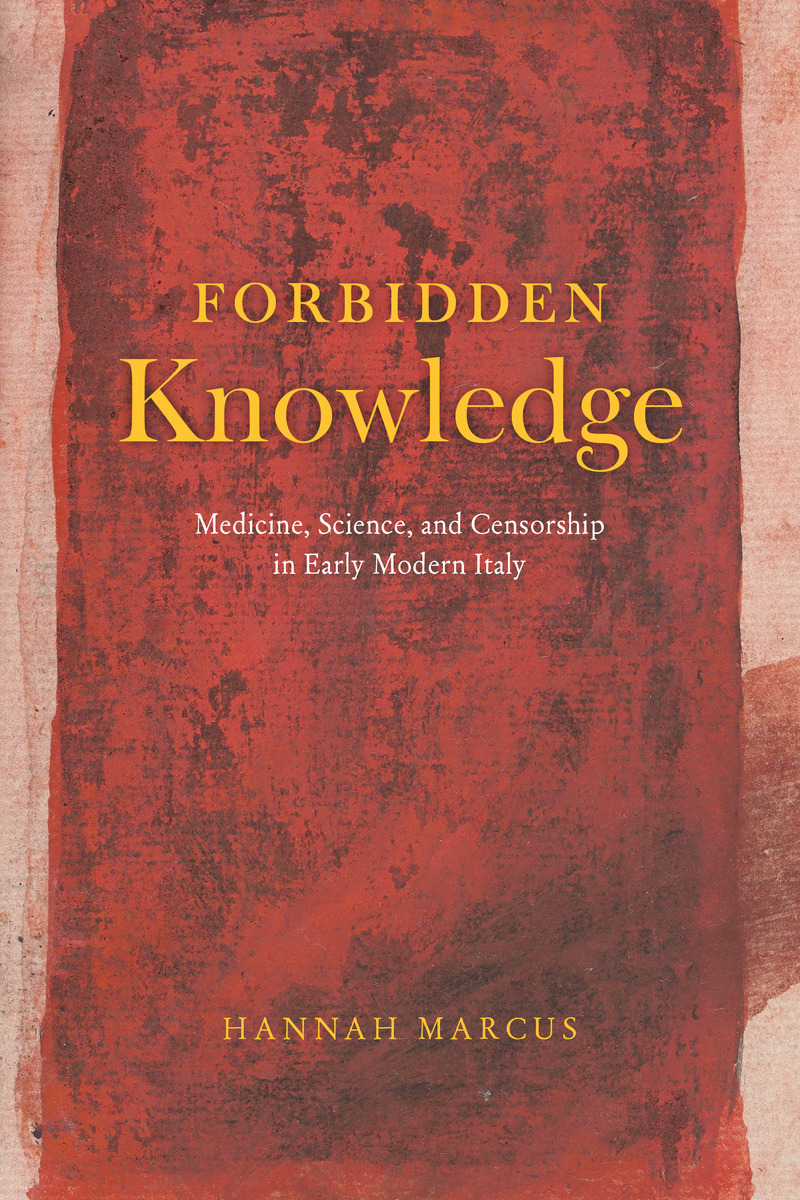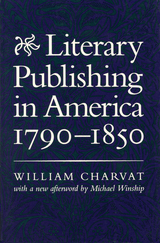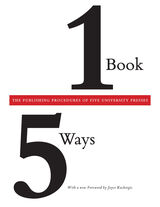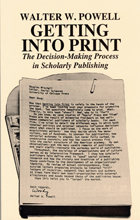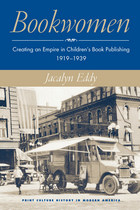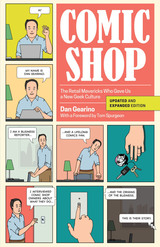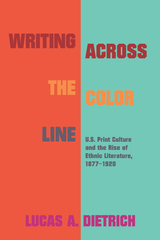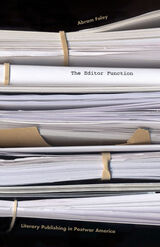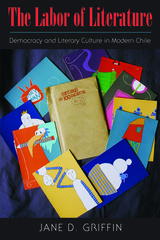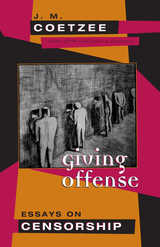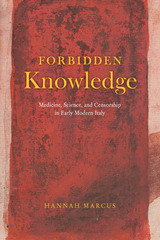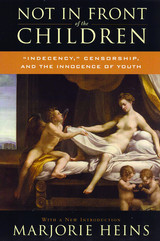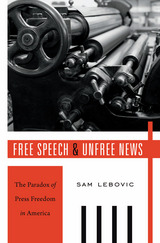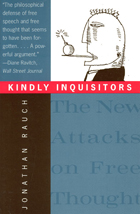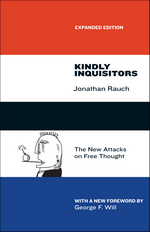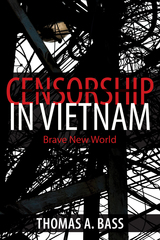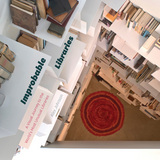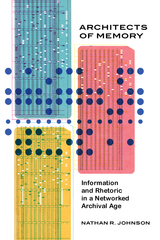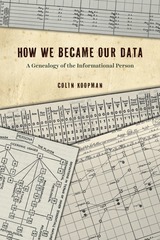Forbidden Knowledge: Medicine, Science, and Censorship in Early Modern Italy
University of Chicago Press, 2020
Cloth: 978-0-226-73658-7 | Paper: 978-0-226-82947-0 | eISBN: 978-0-226-73661-7
Library of Congress Classification Z658.I8M373 2020
Dewey Decimal Classification 363.310945
Cloth: 978-0-226-73658-7 | Paper: 978-0-226-82947-0 | eISBN: 978-0-226-73661-7
Library of Congress Classification Z658.I8M373 2020
Dewey Decimal Classification 363.310945
ABOUT THIS BOOK | AUTHOR BIOGRAPHY | REVIEWS | TOC | REQUEST ACCESSIBLE FILE
ABOUT THIS BOOK
An exploration of the censorship of medical books from their proliferation in print through the prohibitions placed on them during the Counter-Reformation.
Forbidden Knowledge explores the censorship of medical books from their proliferation in print through the prohibitions placed on them during the Counter-Reformation. How and why did books banned in Italy in the sixteenth century end up back on library shelves in the seventeenth? Historian Hannah Marcus uncovers how early modern physicians evaluated the utility of banned books and facilitated their continued circulation in conversation with Catholic authorities.
Through extensive archival research, Marcus highlights how talk of scientific utility, once thought to have begun during the Scientific Revolution, in fact, began earlier, emerging from ecclesiastical censorship and the desire to continue to use banned medical books. What’s more, this censorship in medicine, which preceded the Copernican debate in astronomy by sixty years, has had a lasting impact on how we talk about new and controversial developments in scientific knowledge. Beautiful illustrations accompany this masterful, timely book about the interplay between efforts at intellectual control and the utility of knowledge.
Forbidden Knowledge explores the censorship of medical books from their proliferation in print through the prohibitions placed on them during the Counter-Reformation. How and why did books banned in Italy in the sixteenth century end up back on library shelves in the seventeenth? Historian Hannah Marcus uncovers how early modern physicians evaluated the utility of banned books and facilitated their continued circulation in conversation with Catholic authorities.
Through extensive archival research, Marcus highlights how talk of scientific utility, once thought to have begun during the Scientific Revolution, in fact, began earlier, emerging from ecclesiastical censorship and the desire to continue to use banned medical books. What’s more, this censorship in medicine, which preceded the Copernican debate in astronomy by sixty years, has had a lasting impact on how we talk about new and controversial developments in scientific knowledge. Beautiful illustrations accompany this masterful, timely book about the interplay between efforts at intellectual control and the utility of knowledge.
See other books on: Censorship | Early Modern Italy | Libraries | Marcus, Hannah | Medicine
See other titles from University of Chicago Press
